Bovine TB: Farmer's distress at slaughter of pregnant cows
- Published
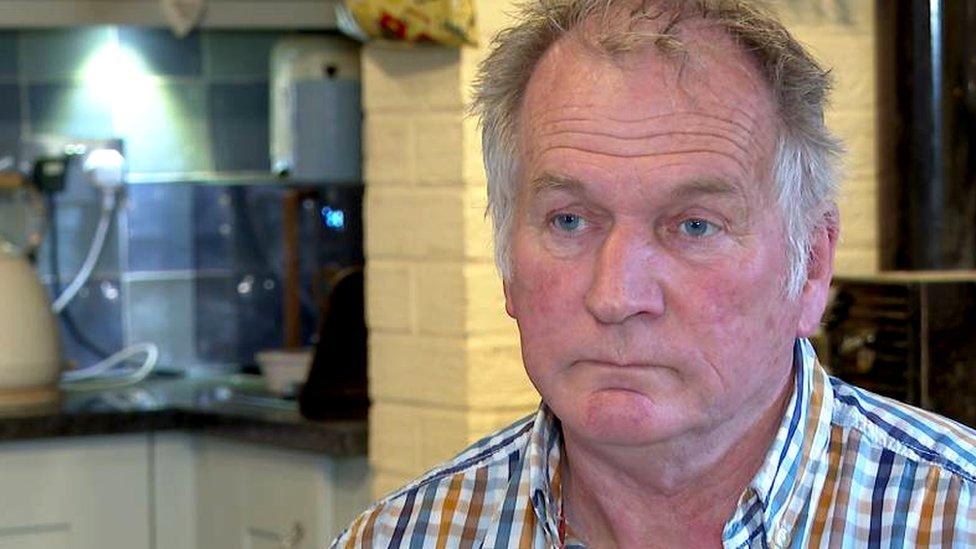
Geraint Evans recalls seeing six of his herd being shot in his farmyard
"I can cope with seeing a cow being shot," said farmer Geraint Evans. "But what hurt me most was seeing the calf in the womb, being suffocated."
He was describing the result of regulations which means pregnant cows testing positive for tuberculosis (TB) have to be slaughtered on his farm.
There have been calls for a change in the rules.
The Welsh government said welfare was "uppermost" when taking cattle from farms hit by TB.
In Wales cattle cannot be removed from a farm after a positive TB test.
Under strict circumstances in England - but not in Wales - the slaughter process can be delayed if a cow or heifer is in the last 60 days of pregnancy. This is to allow the animal to give birth.
"The on-farm slaughter of heavily pregnant cows or heifers identified as TB reactors is a harrowing event for all concerned," said NFU Cymru TB Focus Group chairman Roger Lewis.
"Bovine TB continues to devastate farming families across Wales and this experience only adds to the emotional burden imposed by this disease.
"We understand Welsh government are working to refresh their approach to TB and we stand ready to work with them on designing an alternative approach to this practice."
Mr Evans, a fifth generation farmer from Pembrokeshire who has been in and out of TB restrictions for more than a decade, vividly remembered having to watch six of his herd being slaughtered on his yard.
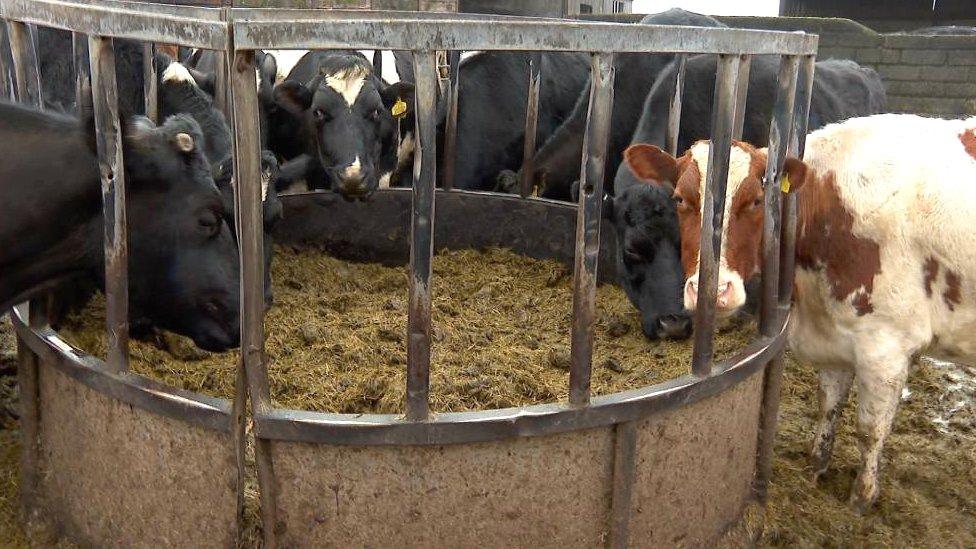
Current rules say cattle testing positive for TB must be slaughtered on their farms
"I had to line them up in a row for them to go into the crush, and see them being shot," he said.
"The cow, the mother, had died. And the calf fighting for its life.
"That is very, very trying."
Beyond this specific policy, Mr Evans described farming in Wales as disheartening and depressing.
"There's this dark cloud over us, and I describe it to people that I am farming in a straightjacket."
'Major worries'
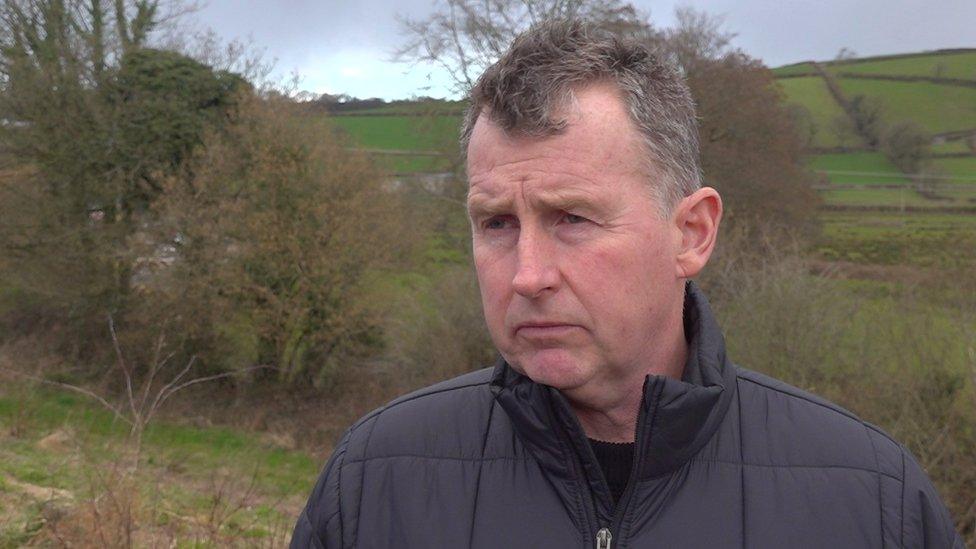
"There's a tremendous amount of pressure on farmers," says Nigel Owens
Nigel Owens, who is retired from his career as one of the world's best known rugby referees, has been farming since 2019.
He said he had deep concerns about mental health issues in the industry.
"There's a tremendous amount of pressure on farmers, and then when you get that extra worry of TB on top of that," said Mr Owens.
"And there's no point in us avoiding the discussion, farmers have taken their own lives. And I don't say that TB is the only reason, but it's part of that big picture that leads to major worries for farmers.
"You talk to those who are involved with the [mental health farming charity] DPJ Foundation, and the number of farmers who contact them for help. I spoke to a friend recently who'd never had TB who was affected recently, and I've seen how it's knocked him.
"His spirits [were] really really down. So it is a concern, and it does impact farmers, and we have to do something about it."
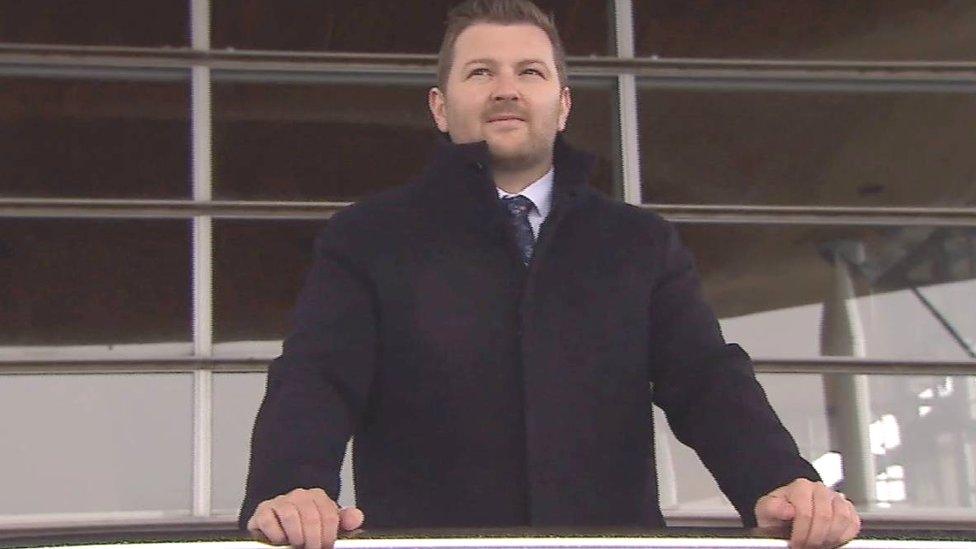
"It's completely inhumane and unfair for the farmers to see that," says Conservative Samuel Kurtz
Samuel Kurtz, the Welsh Conservatives' rural affairs spokesman, said farmers were turning to mental health charities as a result of Welsh government agricultural policies.
"I think it's completely inhumane," said Mr Kurtz.
"I think it's inhumane for the animal, and there's no animal welfare benefit to this situation we've got here in Wales. And it's completely inhumane and unfair for the farmers to see that themselves.
"To see in-calf cows and heifers slaughtered, with a calf still inside of them, drowning in the mother's womb.
"That's not an animal welfare situation that I want to be associated with and it's a real shame that the Welsh government still want to persevere with this policy."
'A bit of dignity and respect'
"You can isolate the cow or the heifer on the farm away from the main herd," Mr Kurtz continued.
"You can have it give birth with a bit of dignity and respect, and the transmission rate of TB between its mother and its calf are very, very low, if any.
"What that can do is replenish the stock that the farmer is losing through TB with a live calf, giving that calf a chance to live because at the moment it's drowning in its mother's womb, and also allowing that cow to die with dignity which isn't happening at the moment."
Figures show the number of animals slaughtered for TB control has fallen from 11,655 in 2009 to 9,516 in the year to December 2022 - an 18.4% drop.
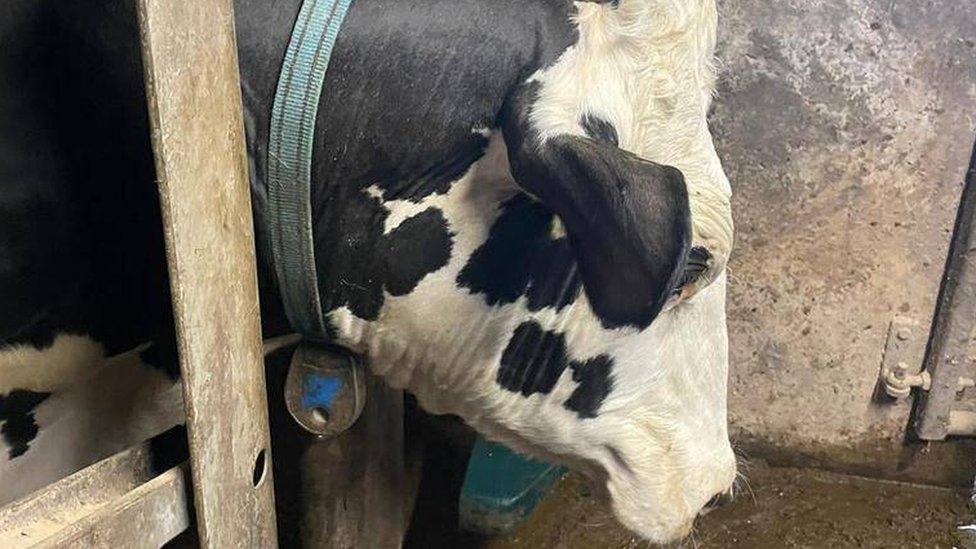
The number of animals slaughtered for TB control is down by 18.4% since 2009 to 9,516
A Welsh government spokesperson said: "Welfare considerations are uppermost when removing cattle from TB affected farms.
"On-farm slaughter is undertaken whenever cattle are unfit to be transported live from farms.
"Our TB policy is neither inhumane nor heartless and the slaughter of cattle on farm is fully compliant with welfare legislation."
The Welsh government also said it was "aware of the huge challenge of TB in cattle, and the distress it causes farmers having to manage it."
"We have seen good progress towards eradication since we established our programme, with long-term decreases in new incidents and prevalence."
- Published20 April 2021
